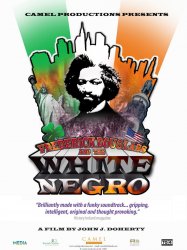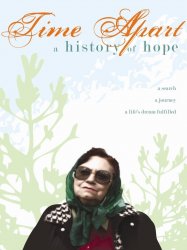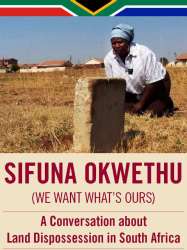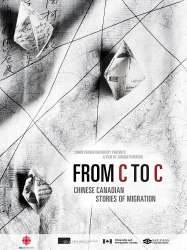Les films ayant le thème "Documentaire sur la discrimination", triés par note

Below the Fold (2007)
, 26minutesThèmes Le racisme, Documentaire sur la discrimination, Documentaire sur le droit, Documentaire sur une personnalité, Documentaire sur les villes
On July 12, 1981 the Los Angeles Times published the first article in what came to be known as the "Marauders Series". Full of negative stereotypes and inflammatory language, the series depicted African Americans and Latinos as ruthless thieves who committed crimes in affluent neighborhoods and who fled via L.A.'s freeways.

The War on Britain's Jews? (2007)
, 50minutesGenres Documentaire
Thèmes Le racisme, Religion, Documentaire sur la discrimination, Documentaire sur le droit, Documentaire sur une personnalité, Documentaire sur la religion, Religion juive

4Chosen: The Documentary (2008)
Réalisé par Jon Doscher
Origine Etats-Unis
Genres Documentaire
Thèmes Le racisme, Documentaire sur la discrimination, Documentaire sur le droit, Documentaire sur une personnalité
Acteurs Al Sharpton

As We Forgive (2008)
Genres Documentaire
Thèmes Afrique post-coloniale, Le racisme, Documentaire sur la discrimination, Documentaire sur le droit, Documentaire sur la guerre, Documentaire historique, Documentaire sur une personnalité, Documentaire sur la politique, Politique
The film tells the story of two Rwandan women who come face-to-face with the neighbors who slaughtered their families during the 1994 genocide, and their personal journeys toward forgiveness. Featuring in-depth interviews with both survivors and murderers, As We Forgive provides an intimate, first-hand view of the encounters between genocide perpetrators and their victims’ families.
 , 2h20
, 2h20Origine Etats-Unis
Genres Documentaire
Thèmes Film sur un écrivain, Esclavagisme, Le racisme, Documentaire sur la discrimination, Documentaire sur le droit, Documentaire historique, Documentaire sur une personnalité
Acteurs Diahann Carroll
 , 52minutes
, 52minutesGenres Documentaire
Thèmes Esclavagisme, Le racisme, Documentaire sur la discrimination, Documentaire sur le droit, Documentaire sur la guerre, Documentaire historique, Documentaire sur une personnalité, Politique, Film catastrophe
Frederick Douglass and the White Negro is a documentary telling the story of ex-slave, abolitionist, writer and politician Frederick Douglass and his escape to Ireland from America in the 1840s. The film follows Douglass' life from slavery as a young man through to his time in Ireland where he befriended Daniel O'Connell, toured the country spreading the message of abolition and was treated as a human being for the first time by white people. His arrival in Ireland coincided with the Great Famine and he witnessed white people in what he considered to be a worse state than his fellow African Americans back in the US. The film follows Douglass back to America where he buys his freedom with funds raised in Ireland and Britain. Fellow passengers on his return journey include the Irish escaping the famine who arrive in their millions and would go on to play a major role in the New York Draft Riot of 1863 which Douglass could only despair over. The film examines (with contributions from the author of How The Irish Became White Noel Ignatiev amongst others) the turbulent relationship between African Americans and Irish Americans during the American Civil War, what drew them together and what drove them apart and how this would shape the America of the twentieth century and beyond.
 , 43minutes
, 43minutesOrigine Canada
Genres Documentaire
Thèmes Le racisme, Religion, Documentaire sur la discrimination, Documentaire sur le droit, Documentaire sur la guerre, Documentaire historique, Documentaire sur une personnalité, Documentaire sur la religion, Politique, Religion juive, Documentaire sur la Seconde Guerre mondiale
A search, a journey, a life’s dream fulfilled. Seventy-seven-year-old Holocaust survivor Alice Zuckerman never gave up hope she would find her family, lost after the Second World War. When scribbled notes on torn paper reveal clues to her past, Alice and her family reunite. Alice takes us on a moving journey through old Eastern Europe, a world that seemingly disappeared through Nazism and communism. Yet the world of Alice’s childhood remains vital in the hearts of the people she meets along the way.

The Final Journey (2010)
, 2h8Réalisé par R. J. Adams
Origine Etats-Unis
Genres Documentaire
Thèmes Le racisme, Religion, Documentaire sur la discrimination, Documentaire sur le droit, Documentaire sur la guerre, Documentaire historique, Documentaire sur une personnalité, Documentaire sur la religion, Politique, Religion juive, Documentaire sur la Seconde Guerre mondiale
Acteurs Rob Adams, Kelly Crean
The two-hour-long film utilizes a then and now format that blends first-generation archival film with current HD footage of each of the former Nazi camps as they are today and the how and who they appeared during the Third Reich.

Yellow Face (2010)
, 45minutesOrigine Etats-Unis
Genres Documentaire
Thèmes Le racisme, Documentaire sur la discrimination, Documentaire sur le droit, Documentaire sur une personnalité
Yellow Face is one Chinese actress' journey to discover what it means to be "Asian" in America. The filmmaker is the first Chinese National to be accepted into the Juilliard School's Drama Division. Since her graduation in 2008 she has followed the protest against 'Yellow Face' in Hollywood. 'Avatar: The Last Airbender,' a children's show on Nickelodeon featured Asian and Inuit characters in a fantasy setting. The creators of the show were inspired and informed by Asian and Inuit culture. The live action feature 'The Last Airbender' produced by Paramount cast all three leads white, and filled background roles and non-speaking extras with Asian, Hispanic and Middle Eastern nationalities. Although the 'Yellow Face' casting outraged many fans, others remain at peace with it.

Sifuna Okwethu (2011)
Origine Etats-Unis
Genres Documentaire
Thèmes Afrique post-coloniale, Le racisme, Documentaire sur la discrimination, Documentaire sur le droit, Documentaire sur une personnalité, Documentaire sur la politique, Politique
The film tells the story of both sides claiming the same land as their own. The Ndolilas family’s land was taken by the apartheid government in the 1970s without compensation, and ever since then they have been on a quest to get it back. Standing in their way are working class black homeowners who purchased portions of the Ndolila's land during apartheid. For the homeowners, the land and houses they have legally purchased are a reward for their hard work and the fulfillment of their hopes and dreams for a better life in the new democracy. For the Ndolilas, the land is part of their family legacy and hence deeply intertwined with their identity. Both sides have a legitimate right to the land, and the film encourages viewers to think about whose rights should prevail.
 , 46minutes
, 46minutesOrigine Canada
Genres Documentaire
Thèmes L'immigration, Le racisme, Documentaire sur la discrimination, Documentaire sur le droit
Filmed in Canada and China's Guangdong province, "From C to C" 《金山梦——中国与加拿大的故事》contrasts the historical injustices faced by Chinese migrants and their families over the last century with the experiences of contemporary Chinese Canadian youth who embody diverse, transnational identities across Canada today. With interviews in four languages—Cantonese, Mandarin, Taishanese and English—the film conveys the impact of the historical Head Tax and Exclusion Act (1923 - 1947) imposed on Chinese immigrants to Canada. The film features interviews with Chinese Canadian veterans George Chow and Frank Wong and 104-year-old head tax redress activist Charlie Quan.
 , 30minutes
, 30minutesRéalisé par Eduardo Montes-Bradley
Origine Etats-Unis
Genres Biographie, Documentaire
Thèmes Le racisme, Documentaire sur la discrimination, Documentaire sur le droit, Documentaire historique, Documentaire sur la politique, Politique
The film is built around an in-depth interview with Julian Bond, by Eduardo Montes-Bradley at the Sixth & I Synagogue in Washington, D.C., along with the last few lectures that he delivered, as a member of faculty, at the University of Virginia in May 2012. The interviews are bolstered by a barrage of photographs and archival footage taken from different sources. These images help define and illustrate the different historical eras beginning with the American Civil War and running up to the 2008 US presidential election.

Between Hitler and Stalin (2003)
, 1hThèmes Le racisme, Documentaire sur la discrimination, Documentaire sur le droit, Documentaire sur la guerre, Documentaire historique, Documentaire sur une personnalité, Politique, Documentaire sur la Seconde Guerre mondiale

A Story about a Bad Dream (1999)
, 50minutesThèmes L'enfance, Le racisme, Religion, Documentaire sur la discrimination, Documentaire sur le droit, Documentaire sur la guerre, Documentaire historique, Documentaire sur une personnalité, Documentaire sur la religion, Politique, Religion juive, Documentaire sur la Seconde Guerre mondiale

The Notebooks of Memory (2008)
, 53minutesRéalisé par Anne Aghion
Origine France
Thèmes Afrique post-coloniale, Le racisme, Documentaire sur la discrimination, Documentaire sur le droit, Documentaire sur la guerre, Documentaire historique, Documentaire sur une personnalité, Documentaire sur la politique, Politique
Anne Aghion's third film in her Rwanda series concentrates on the local citizen-judges' tribunals, where they must weigh survivor accounts of the genocide massacres against the perpetrators' testimony.
 Connexion
Connexion